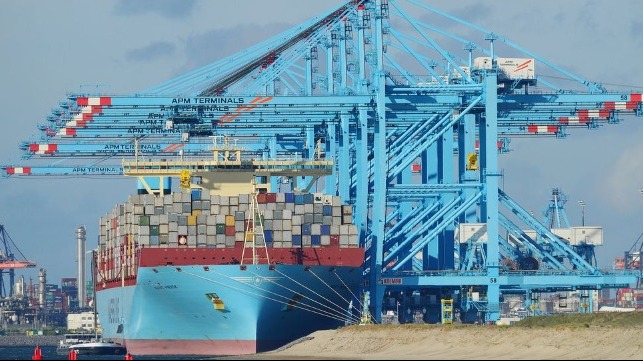EU Regulators Highlight Shipping's Share of European Carbon Footprint

A new report from Europe's environmental regulators finds that shipping is among the EU's leading sources of greenhouse gas emissions, suggesting a need to accelerate the industry's decarbonization effort.
In a comprehensive study of the industry’s impact on the environment, the European Maritime Safety Agency and European Environment Agency calculated that shipping accounts for 13.5 percent of all European Union greenhouse gas (GHG) emissions from transportation, falling behind road transport at 71 per cent, aviation at 14.4 percent and railways at just one percent. Taken together, the transport sector accounts for about one quarter of all EU carbon emissions.
Although the maritime industry brings substantial economic and social benefits to the bloc, accounting for 77 percent of external trade and 35 percent of intra-E.U. trade, it also has an impact on the environment and the health of citizens.
“Continued action to reduce maritime transport environmental footprint is needed for the sector to play its part in turning Europe into a climate-neutral continent by 2050, meeting our zero pollution ambition and halting and reversing biodiversity loss,” the regulators concluded.
According to the report, ships calling at EU and European economic area ports emitted around 140 million tons of carbon dioxide (CO2) in 2018, representing 18 percent of the global CO2 emissions from international shipping.
Container ships remain as the biggest polluters, emitting 44.2 percent of CO2 followed by bulk carriers at 17.9 per cent and oil tankers at 17.8 percent. Passenger ships account for 6.3 percent of the emissions.
Maritime transport has also contributed to the fact that underwater noise levels in EU waters have more than doubled between 2014 and 2019. It has also been responsible for half of all non-indigenous species introduced into European seas since 1949.
However, there is some good news: even though the volume of oil transported by sea has been steadily increasing, only eight accidental medium to large oil tanker spills out of a worldwide total of 62 occurred in EU waters over the past decade.
“Although maritime transport has improved its environmental footprint in past years, it still faces big challenges when it comes to decarbonizing and reducing pollution,” said Adina V?lean, EU Commissioner for Transport.

that matters most
Get the latest maritime news delivered to your inbox daily.
In recent years, the EU has increased its focus on policies designed to make the shipping industry sustainable, and it says that this decade is crucial in ensuring the industry turns a corner. “A smooth but rapid transition of the sector is crucial to meet the objectives of the European Green Deal and move towards carbon neutrality,” said Virginijus Sinkevi?ius, European Commissioner for Environment, Oceans and Fisheries.
Already, most ships calling in the EU have reduced their speed by up to 20 percent compared to 2008, thereby also reducing emissions. In addition, non-traditional fuels and energy sources, such as biofuels, batteries, hydrogen and ammonia, are emerging as possible alternatives with the potential to decarbonize the sector.
